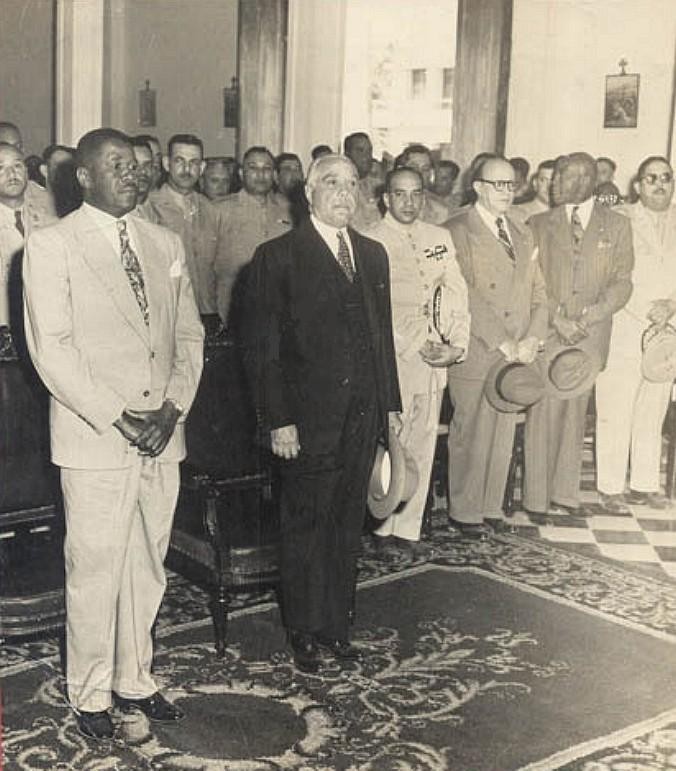
Trujillo with Presdient of Haiti
Rafael Trujillo, dictator of the Dominican Republic, was assassinated by members of the Dominican armed forces. While the U.S. was not directly involved in the plot, it was known that the United States did have prior knowledge of the plan. Also, the Americans gave those carrying out the plot tacit support.
Rafael Trujillo, born in 1891, rose to power in the Dominican Republic through a military coup in 1930. He established one of the most enduring and repressive dictatorships in Latin American history, ruling the country with an iron fist for over three decades. Trujillo's regime was marked by widespread human rights abuses, including political repression, censorship, and the ruthless elimination of opponents. He maintained a tight grip on the country's political and economic life, fostering a cult of personality where he and his family amassed vast wealth and influence.
Trujillo's control extended to virtually all aspects of Dominican society, and his brutal methods earned him both domestic and international condemnation. Despite his oppressive rule, Trujillo initially maintained relatively stable relations with the United States, which saw him as a bulwark against communism in the Caribbean during the early years of the Cold War. However, his increasingly unpredictable behavior, coupled with human rights violations and blatant disregard for diplomatic norms, eventually strained this relationship.
By the late 1950s and early 1960s, opposition to Trujillo's rule had grown both within the Dominican Republic and internationally. The regime's involvement in the attempted assassination of Venezuelan President Rómulo Betancourt in 1960 further isolated Trujillo, prompting the Organization of American States (OAS) to impose sanctions. Internally, dissatisfaction within the military and among civilians fueled resistance against his dictatorship.
On May 30, 1961, a group of Dominican military officers, disillusioned with Trujillo's tyranny, orchestrated his assassination. While the United States was not directly involved in the plot, it is known that American officials had prior knowledge of the conspiracy and provided tacit support to the conspirators. The assassination marked the end of Trujillo's reign and initiated a period of political turmoil and transition in the Dominican Republic, eventually leading to the country's path toward democratization.
 >
>